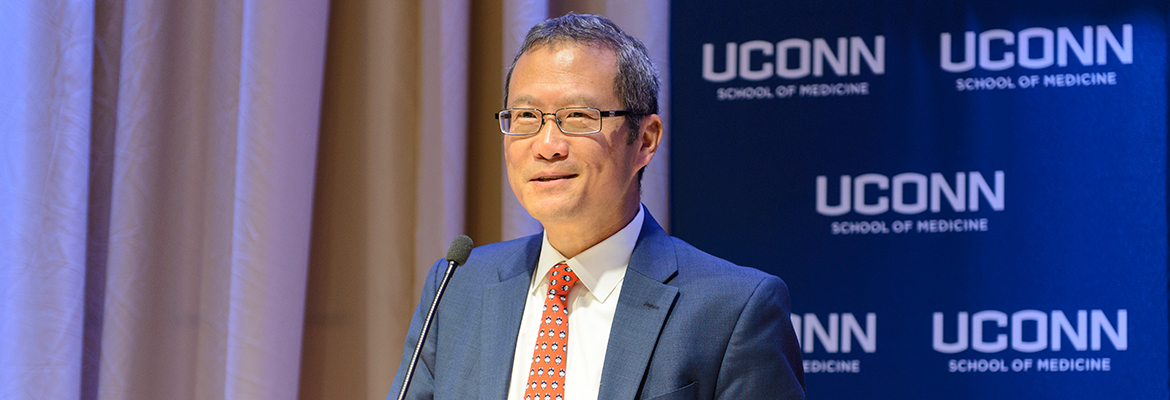
Duties: The Dean’s Council works with the Dean to determine broad medical school policies and strategic plans. It does this primarily by (a) ensuring that all recommendations regarding policies and strategic plans have been developed with the consideration of how they effect the entire School and not just a single domain, (b) synthesizing, coordinating and evaluating the initiatives put forward by the Councils into cohesive strategic plans and objectives1, (c) initiating recommendations regarding policies and priorities in the use of resources, and (d) acting on recommendations from the Oversight Committee.
These functions will be achieved through the consideration of (a) the overall use and commitment of resources and the availability of resources for newly developed policies and plans; (b) how new policies put forth by a Council fit within the strategic plans/goals/objectives of the school as a whole; (c) possible synergies between new proposals and other school needs and goals; and, importantly, (d) the consequences of policies developed by one Council on the entire faculty and students. Thus, while most policies will be developed in the Councils, the Dean’s Council plays a critical integrative function. It bears the final responsibility for evaluating the impact of proposed policies and plans on the School of Medicine and its faculty as a whole.
In addition to considering the policies and recommendations sent from the Councils, the Dean’s Council may be assigned tasks by the Dean, the Executive Vice President, or the Board of Directors. The Dean’s Council will then delegate tasks to the Councils or, if appropriate, delegate an ad hoc committee to address the task.2
The Dean’s Council will also lead the effort to educate the administration of the School of Medicine and of UConn Health about the impact its policy decisions have on the ability of the faculty to do its work and to negotiate ways to streamline the processes. This charge focuses on, for example, the administrative requirements for hiring new faculty members, for spending research dollars, and for implementing approved strategic plans.
Authority: The Dean’s Council advises the Dean regarding strategic planning and resource allocation decisions. When the Dean’s Council finds an impediment to the implementation of a decision or recommendation of a Council, it can (a) return the decision or policy to the Council from which it originated with feedback on the flaws or impediments to implementation, (b) send the decision or policy to a different Council to get further information on the consequences and ways to ameliorate those consequences, or (c) reject the recommendation outright.
The Dean’s Council has authority to overturn a negative decision by the Senior Appointments and Promotions Committee on promotion or tenure only on non-academic grounds.
The Dean’s Council approves the operating rules and guidelines of all governance committees, and designates departments and centers as either “basic science” or “clinical”.
The Dean’s Council will arrange an election, make an appointment, or delegate the appropriate Council to make an appointment when a University, UConn Health, Dental School, Graduate School or other non-School of Medicine committee, or the Board of Directors, desires official representation from the School of Medicine.
The Dean’s Council holds elections for all School of Medicine governance committees. Elections, to be held annually, must provide the opportunity for faculty to nominate self or others.
All terms are three years.
| Voting: Anton Alerte, ex officio Douglas Brugge, '25 Ernesto Canalis, '25 Breno Diniz, '25 Paul Epstein, '27 Robert Fuller, '27 Jaclyn Jaeger, '27 Denis Lafreniere, ex officio Bruce Liang, ex officio Helen Swede, '25 Ruchir Trivedi, '27 Anthony Vella, ex officio |
Non-voting: Melissa Held, ex officio Donna McKenty, ex officio Kiki Nissen, ex officio |
1 The Dean’s Council does not rework or rethink the policy or decision itself.
2 The latter would be especially appropriate when tasks that do not neatly fit within the domains need to be addressed, such as the development of a new faculty compensation plan, revisions to the grievance procedures, or revisions to the criteria for promotion to senior rank.
Meeting Schedule
Meetings are on the third Monday of every month from 3:30 to 5:00 p.m. in the Walker Academic Affairs Conference Room, AG070.
2025 Meeting Minutes
2024 Meeting Minutes
February 5, 2024
March 18, 2024
April 15, 2024
May 15, 2024
June 17, 2024
July 15, 2024
September 16, 2024
October 21, 2024
November 18, 2024
December 16, 2024